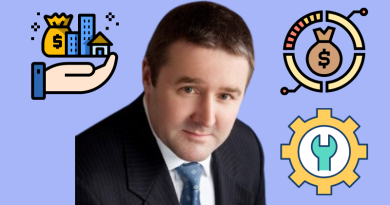Stacy Havener: “Performance doesn’t differentiate you – stories do, people do”
Stacy Havener is the Founder and CEO of Havener Capital Partners in Newport, Rhode Island, USA. Havener Capital is an agency dedicated to helping boutique asset managers build, launch and grow funds. Hedge Funds Club’s Stefan Nilsson checked in with Stacy to ask her about capital raising.
You are a big advocate for bringing personality and stories into the capital raising process, yet many managers think it is all about numbers. Will this ever change? Will they eventually get it when they realise that they are not getting anywhere on numbers alone?
Gosh, you are hitting on one of the biggest issues that managers don’t realise is in their way. Because their unique ability is investing, markets, and very much tied to numbers and statistics, numbers are their comfort zone. Numbers are what they want to talk about. What they don’t realise is “pitching” is not about them. It’s not about what they want to talk about. Meetings with investors are about the investor – the issues investors want to talk about, the problems investors are facing. One of which is putting together a portfolio of interesting complementary strategies. Not just a bunch of double-digit return strategies. That’s not all the investor cares about. How did you generate the returns? Tell me some stock stories. What’s the process? Tell me a story of an investment from idea generation to implementation. What’s the risk management? Tell me a story about a position that didn’t work and what you did about it. And more than that? Tell me about the people behind the portfolios. Not just, well it’s Tom and Sally… that’s not enough. Tell me who they are as people, how they know each other, how they came to work together, how they divide responsibilities. So, it’s not just numbers. It’s also not just words. It’s both. And that’s what most managers miss. Performance is table stakes. Performance doesn’t differentiate you. Stories do. People do. People invest with people. Will they ever get it? For their sake, I sure hope so.
Raising capital often takes a long time, much longer than some managers like. What can managers do in advance to prepare the ground for when they need to raise capital in a timely manner?
Raising capital takes at least twice as long as you think. At least. It’s a marathon, not a sprint. We help our managers focus on what you can control. Help the investor solve problems and see that you are the guide for them, help them understand your strategy is a solution that has a great role in the portfolio, but also have the humility to know that you can’t control their timing. When they allocate, how much, the pace of follow-on allocations, that’s not something portfolio managers or salespeople can control. So, focus on you. Do you have the right due diligence materials? Do you have a website where investors can do some DIY research? Do you make yourself accessible? Do you share your thought leadership? Do you have a digital strategy that continually provides useful content? Do you lead with authenticity? If you give investors everything they need to make a decision, you’ve done your job. The timing is up to them.
Boutique and emerging fund managers often have limited resources for marketing and sales. What should they prioritise when it comes to spending their limited budget?
Start with the basics and focus on things that are big impact/short dollars. The big firms have armies of salespeople and PR and conference/event budgets for keynote speeches. Don’t use their playbook, you’ll go broke and it won’t work. Instead, go where the playing field is level – the internet and social. There you can compete with thought leadership, with brainpower. That’s a fight boutiques can win. With digital and social the biggest investment is getting your thoughts, your words, your stories out of your head/heart and into a consumable format. The boutique blueprint that we use leans into the advantages boutiques have over bigs. Accessibility, alignment of interest, employee ownership, capacity constraint, specialisation. All of those things are strengths and advantages of boutiques. But… you need to tell somebody! If you want your fans to find you, you need to tell them you are there. You can’t just build it and wait for investors to show up. That only happens in the movies and this isn’t “Field of Dreams”.
Let’s talk about storytelling and investor relations, i.e., keeping the money rather than raising it. Is there anything different here that fund managers should do when communicating and interacting with existing investors or is it the same as for capital raising?
Great question! The story framework you use for helping investors pick you as their guide is slightly different from the story framework you use to keep them with you. The latter tilts more toward philosophy, process, portfolio and performance stories versus the people stories. For example, investor relations stories should illustrate how your philosophy and process are intact even if they aren’t delivering the expected outcomes. Portfolio stories that tell how a position worked or didn’t, why, and what you did about it. Performance stories that illustrate accountability and honesty when things don’t work and repeatable process when things do. People always matter most. Once someone invests with you, you need to continue to show them they made the right choice and that you remain authentically who you said you were. Great relationships take work and the investor relationship is no different.









